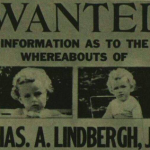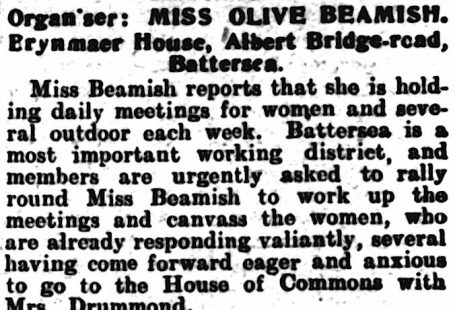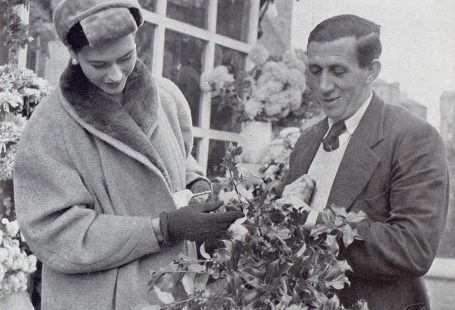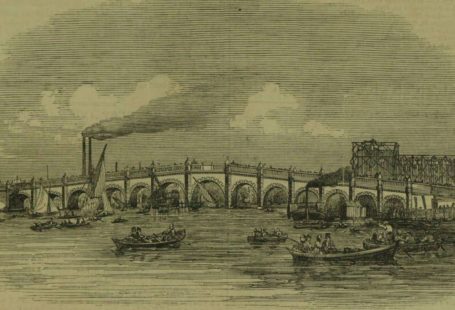
This week’s episode of Who Do You Think You Are? took us to India and Bangladesh with Sunetra Sarker. During the program, Sarker became familiar with her Indian ancestors and learned how the tragedies of war affected her family. With the use of newspapers, Sarker was able to place her ancestors into the context of public events and gain a deeper understanding of the lives they led.
At the beginning of the episode, Sunetra conveys a feeling most of us have had as adults – I wish I would have listened more. I wish I would have learned the stories of my family. But too often, we begin our family history journey after those that could have helped us are gone. Sunetra had heard that her mother’s grandfather was a lawyer, an author, and someone special. In a conversation with her mother, Sunetra found out that her great-grandfather, Naresh Chandra Sengupta, corresponded with Rabindranath Tagore, one of India’s greatest writers. To find out more about the famed author, we searched his name on The British Newspaper Archive.
On 26 August 1926, the Cornishman wrote about a visit the great poet made to Cornwall. Tagore was staying with a friend in his Cornish holiday home. It is obvious that the journalist was enthralled by Tagore. He went on to described the poet:
‘Rabindranath Tagore lives to radiate benevolence, and to imbue those with whom he comes in contact with a spirit akin to that of Christ, Buddha, Akbar and other friends of humanity, whose gospel was brotherhood, kindliness and selflessness.’

Fifteen years later, the Cornishman announced the death of Rabindranath Tagore. He had a worldwide reputation as a poet and challenged the British’s attitudes towards Indian people.

To discover more about her great-grandfather, Naresh Chandra Sengupta, Sunetra travelled to Kolkata (Calcutta), the historic capital of British India in the state of Bengal. In Kolkata, she discovered the importance of Naresh’s writings and his support of women’s rights. He had set up a school for girls, which Sunetra’s own mother attended. Then it was revealed to Sunetra that Naresh translated a novel, Ananda Matha or Abbey of Bliss. The novel was considered dangerous by the British government because it included the lyrics to the song ‘Bande Mataram’. The song promoted the mother country and praised Bengal. Soon the song was adopted and used as a rallying cry for nationalists. The nationalist movement was strong in Bengal expecially after the British government split the state into East and West.
In last night’s episode, Sunetra learned of the importance and impact of the song when she read the London Daily News.

The nationalist song ‘Bande Mataram’ is discussed a number of times in the Homeward Mail from India, China and the East. The Homeward Mail was first published in 1857 and was a compendium of military, political, and economic news from the East. Particularly, the paper focused on India. On 5 May 1906, the Homeward Mail explained that the song originated from Anada Matha. The article breaks down the song and gives details of different lines. It states that when Bengali people sang ‘Bande Mataram’, ‘they felt more strength in their arms’.
(Click image to enlarge)

The song was mentioned again, later in the year at a mass meeting. A speaker, Mr Bannerjee, was greeted with shouts of ‘Bande Mataram’, not as a rally call, but instead as a wish of peace and goodwill. The article notes the following:
‘”Bande Mataram” had become the cry of Bengal, it had become the cry of Bombay; it had extended to the farthest South and from thence it had reached the farthest North. In short, it was a term to invite Indian youths in the service of their mother-land’.

It is fascinating that through the newspapers we can see the different interpretations of the song.
Bengal was eventually reunited, but the nationalist movement across India continued. Sunetra discovered that Naresh’s sister, Charuprobha, was active in the nationalist movement and even arrested on a few occasions. During her work, she met and corresponded with Mahatma Gandhi. Gandhi was a key political campaigner for Indian independence through his teaching of passive resistance. They first met in 1931. Charuprobha was a powerful leader and participated in marches and gave speeches. Unfortunately, Charuprobha is not found in the newspapers, but you can follow the campaign of independence and the numerous arrests that occurred.


India’s independence arrived in 1947, and all the work that Sunetra’s family put in from translating texts to making them accessible for the masses and assisting Gandhi’s movement for independence came to fruition.

Later in the episode, Sunetra Sarker’s journey took her to modern-day Bangladesh, formerly East Pakistan, to explore the story of her great-great-grandfather Bipin Bihari Bakshi. The Bakshi family was an aristocratic family and the benevolent landlords in the village Kanthalia. The local people talked about the Bakshi family’s generosity. For Sunetra, the journey became emotional as she walked through the remains of the Bakshi home and discovered why the family left. In 1971, a terrible and gruesome war of independence began in East Pakistan, and that same year Jagadish, the head of the Bakshi family, was taken away and murdered. The rest of the Bakshi family soon left their home. During the conflict, terrible atrocities were committed. The Illustrated London News reported on the progress of the war.

This week’s episode of Who Do you Think You Are? did end on a more sombre note, but it was an enlightening episode. Sunetra Sarker discovered how her family contributed to nationalist movements and left their legacy on a small village in Bangladesh. Now she has a deeper and more enriched connection with her family history.
To discover more about India and East Pakistan, we recommend searching the following titles:






